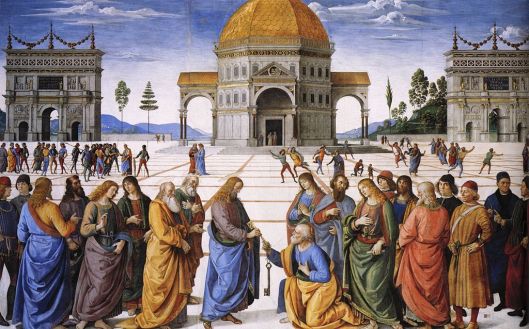The Venerable Bede points out that we see both the natures of Christ stated in this passage. Peter is divinely guided to proclaim his the Messiah and the Son of God, and this Jesus confirms: both man and God speak to his identity.
St Augustine, like Tertulian and Ceaarius of Arles comments upon the taking up of the Cross – that the disciples of Christ must suffer, as their master suffered, at the hands of the unrighteous. But we are not to love ourselves – that was man’s first sin – but to love God and our neighbour as ourself. Sinners will dissent – they are bound to by the chains of their sin, but we should not yeild to them. To love God and the world equally is not possible – we can have only one Master. Just as no one can be a Christian and ashamed of Christ, so, Cyrian tells us, can no one avoid suffering and confessing that Christ is Lord. There is much to love in God’s world, and it is right we should love it – but we do so because we love him, not for its sake, but for his sake.
St Cyril of Alexandria reminds us of the love God showed for us. He who, as God, is beyond any suffering, became incarnate and suffering our keenest woes in the flesh. He did not, thereby cease to be God. The paradox is that precisely as he entered into created order, he remained above it; he remained above the law even as he came to suffer under it; he retained the inviolable divine dignity precisely as he took on ‘the form of a slave’.


What do you think about the fact the Jesus was rejected by the leaders of his day (both religious and secular)?
LikeLike
It was inevitable – everything we see in Isaiah suggested that the Son of Man would be rejected by the world. It is a warning to us about the world.
LikeLiked by 1 person